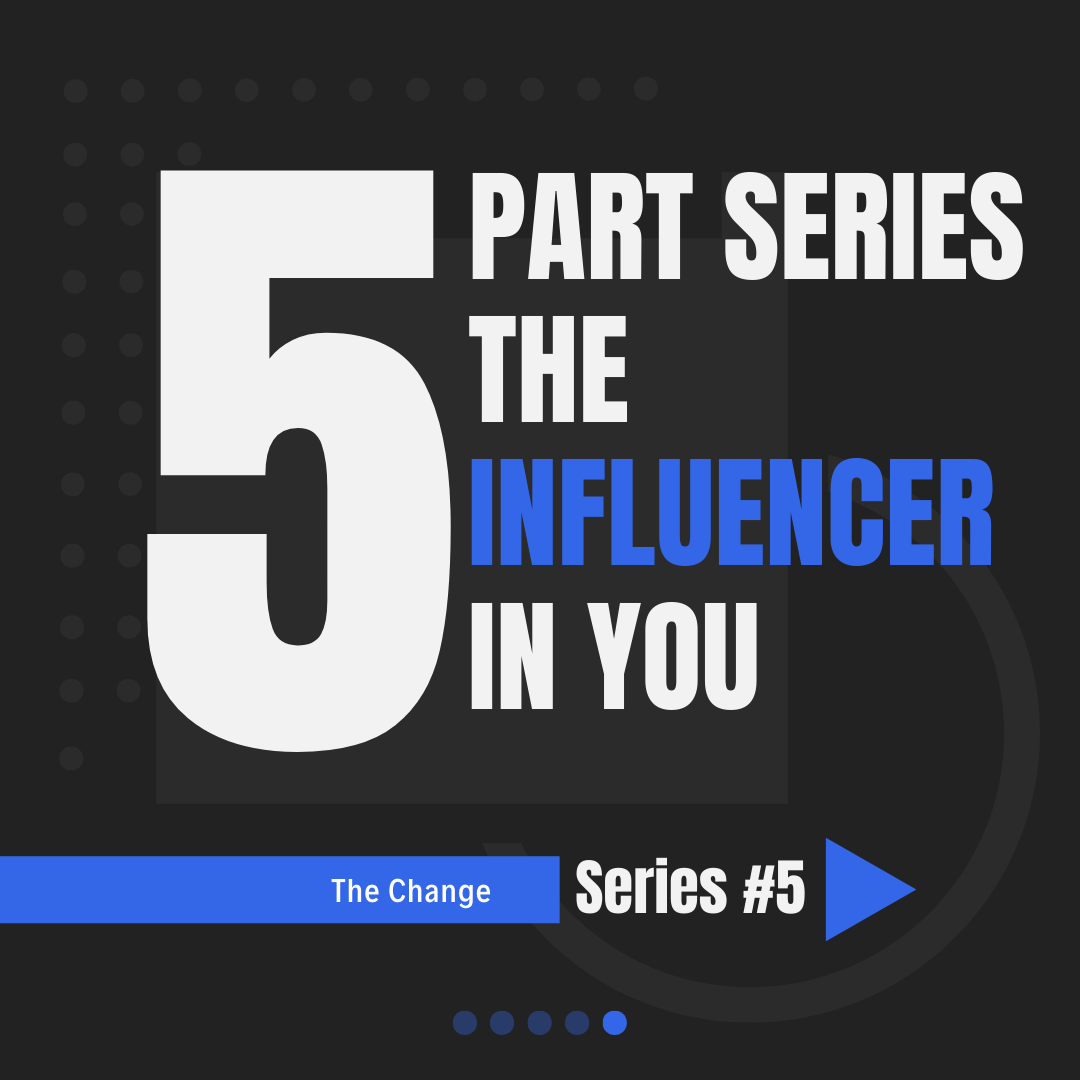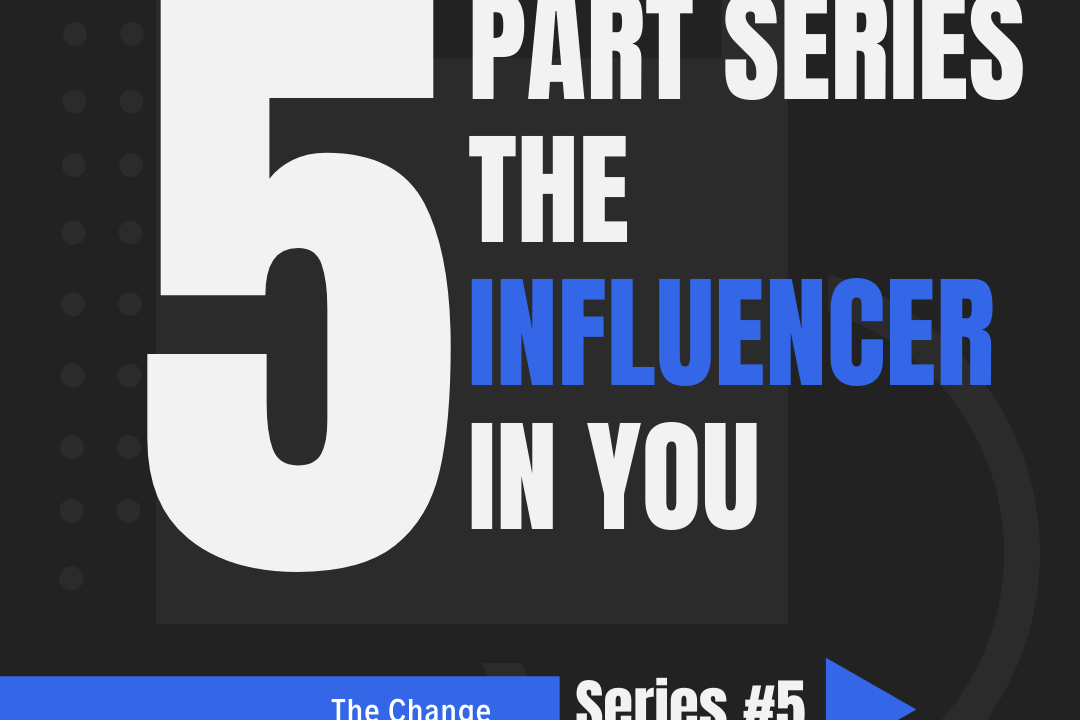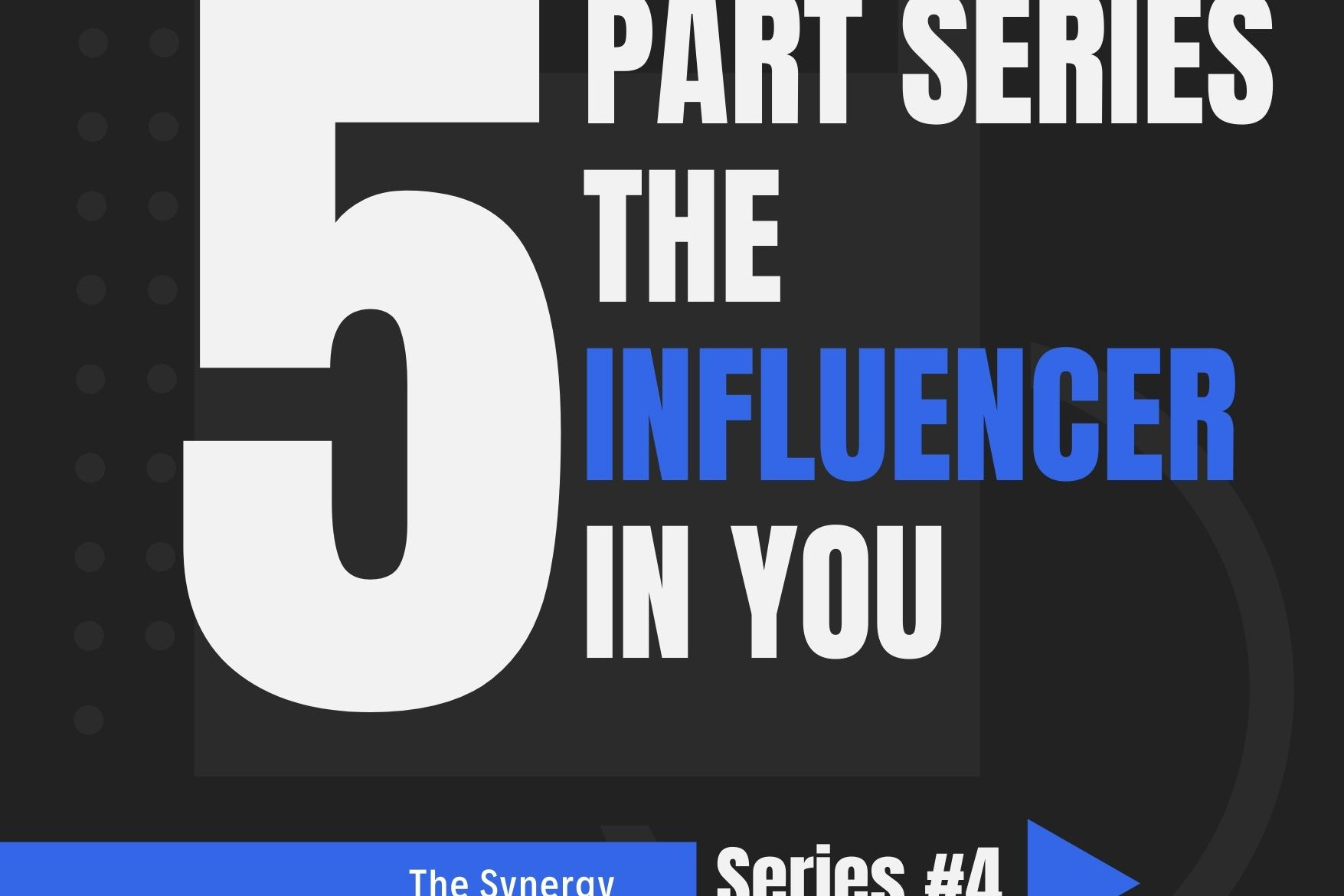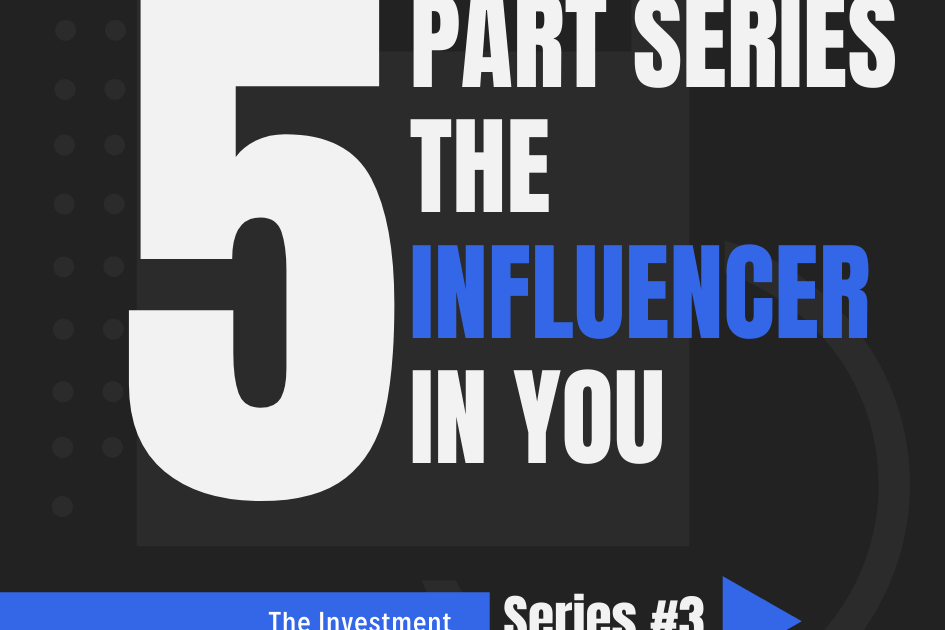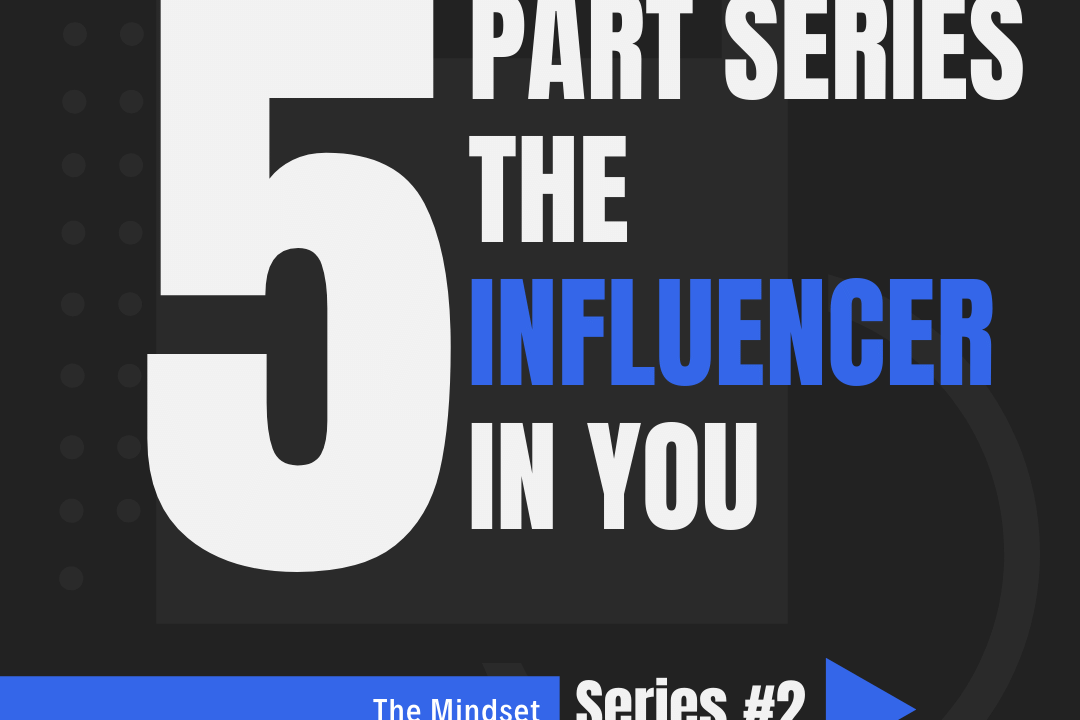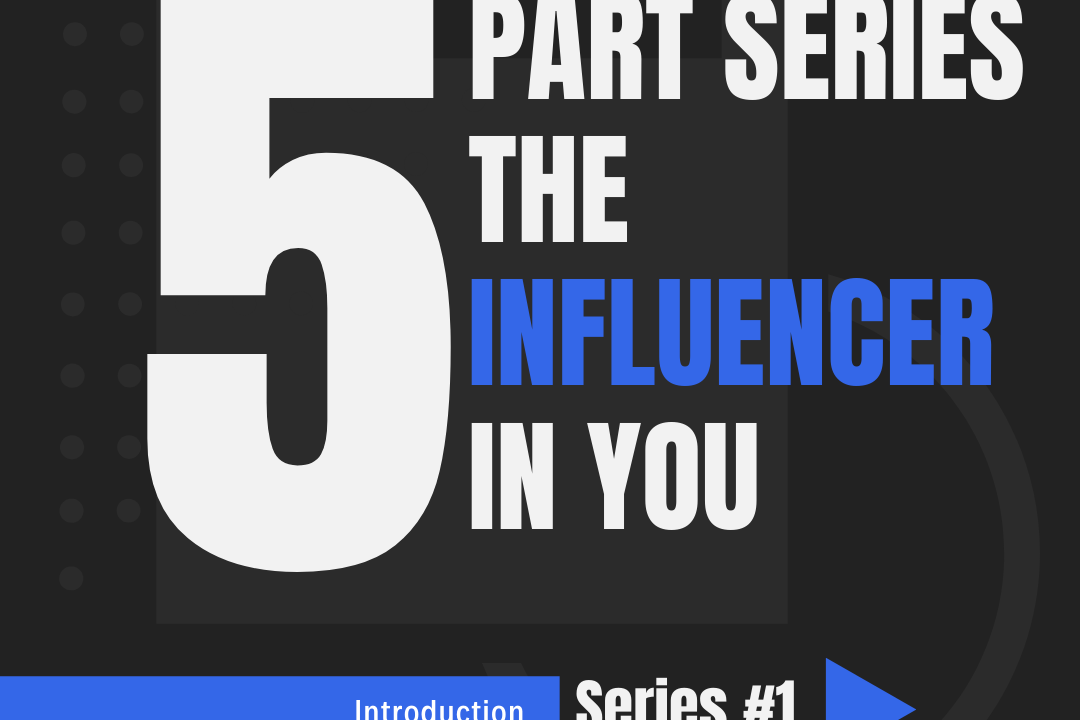The Influencer in You - 5 Part Series #5
The Influencer in You: Why Mentoring Works, How It Changes Lives, and Where It Transforms Legacies
Series #5: The Change
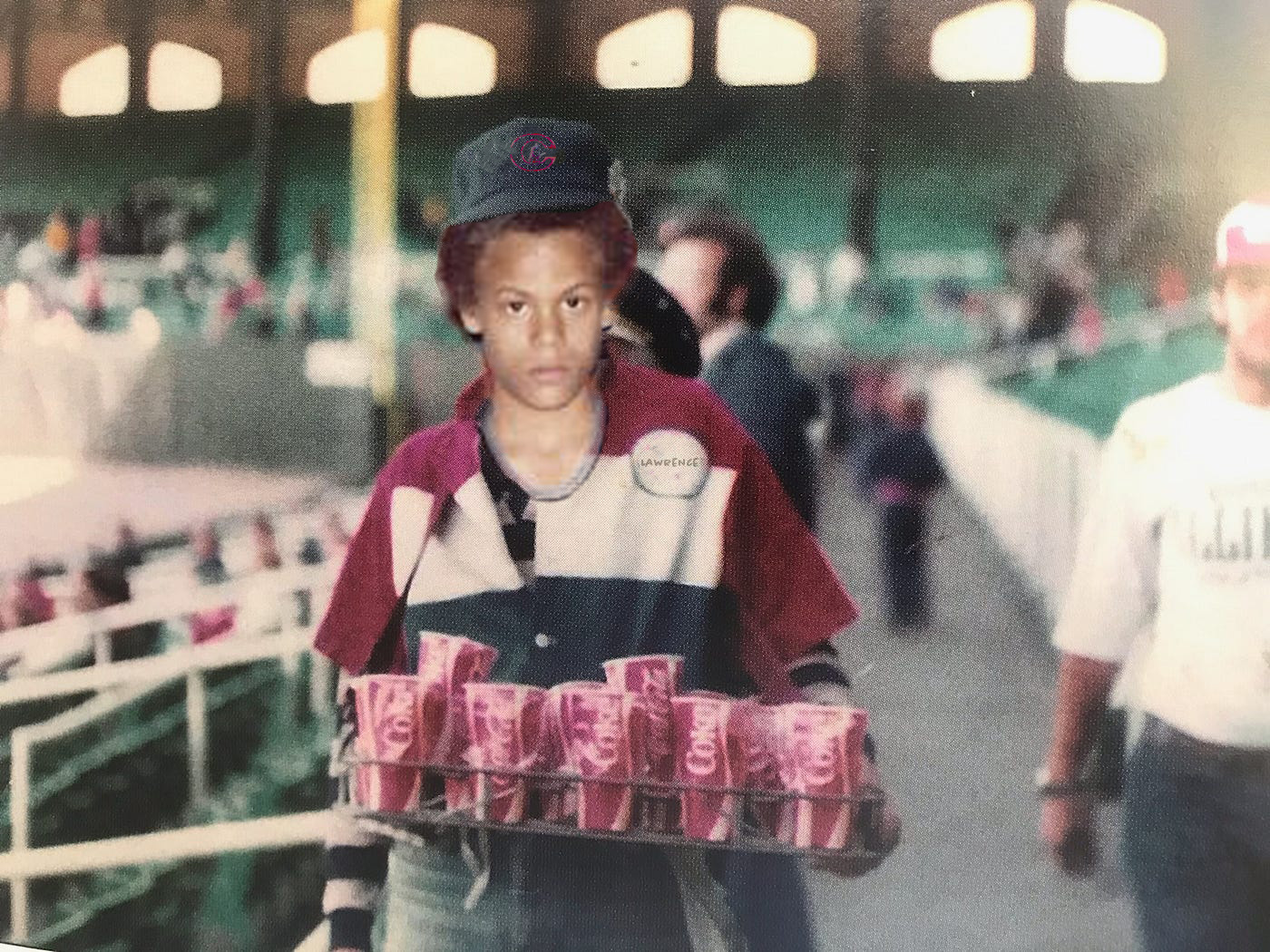
Bankable Change: It’s How You Measure Your Mentoring Worth
Let’s talk change, the litmus test of mentoring success. I loved hearing customers who just bought my last watered-down Coke as a teenage vendor at Cooper Stadium and the horseshoe blurt out, “Keep the change!” It was music to my ears. Another beverage rack had been sold, with a much-needed tip earned by a poor kid from the Bottoms (or lower westside of Columbus) growing up in the Sullivant Gardens Housing Projects. Each rack sold netted me 10 percent of sales or $2.00. A paltry sum back then, but every dollar counted. As a welfare recipient and math aficionado who could make change with the best of them, I had a pretty good idea how much money (and likely tips) I’d make at Columbus Clippers baseball and OSU football games. You see, I got my hustle on — legit. I sold cokes, hotdogs, Cracker Jacks, popcorn, peanuts, and even San Diego Chicken programs. Rain or shine, I hustled. I had people to meet, places to go, and predicaments to overcome. I was the black version of Huckleberry Finn, so named by my mother, “Ma Dukes.” A lot of my neighborhood peers chose the drug-selling route. I knew better and would feel much worse if Ma Dukes, a 6’0” black woman with huge hands and a formidable grip, ever caught me making an illegal buck on the streets. “Boy, I’ll slap you into next week if I catch you …” Those bone-chilling words still reverberate decades later. Ma Dukes meant what she said and would make good on every substantive threat. Peep this. Bad grammar I know, but “scared money don’t make money.” And fast money never produces meaningful change; it usually makes things worse. Humbly speaking, making change is quite easy for me. I don’t set New Year’s resolutions. I don’t struggle with doubt (but I’m not immune from insecurities). I don’t wait to make a difference; I see needs and fulfill them without being asked. Making change as an invested mentor or ROI mentee won’t be hard for you either. That is, if you develop the right mindset and count the ongoing costs upfront. Right now.
Did you know that only 9 percent of New Year’s resolutions are actually achieved? In other words, 91 percent of people fail in the completion of their New Year’s resolutions, with January 17th serving as “Quitters Day.”
A Mentoring Assignment Too Close for Comfort
Eric Seabrook has been a mentor of mine for years. An attorney by trade and a life coach by tread, Seabrook has decades of experience as a tireless counselor. Early in the mentoring relationship, he did what any seasoned mentor should do to propel a mentee’s growth trajectory. He asked me a loaded question that was prepackaged as a gut-punch command. As an O+ blood type, I have pretty thick skin. O blood types, + or -, tend to be carnivores (and thus have higher levels of stomach acid), usually need intense exercise to burn off steam, and are generally not afraid to “tell it like it is.” Don’t shoot the messenger; I’m merely highlighting a few key points outlined in the best-selling book, Eat for Your Blood Type. As we were wrapping up our conversation, Seabrook pointed out, “Wouldn’t it be tragic for you to assist inner-city communities in achieving better life prospects and not help your own wife reach her full potential?” Silence. With a scowl on my face, I gave him that look of disbelief: “You calling me out, bro?!” Yes he was, and I deserved it. “I didn’t know if you would punch me or walk away from our friendship, but I had to bring this to your attention,” he added. My wife Monya is a beautiful black woman with immense talents as a graphic (and website) designer, certified wellness coach, and culinary star. Seabrook’s mentoring call out to me was really my wife’s call up. Unlike me, Monya’s more comfortable with behind-the-scenes roles. But without her potential and purpose being unlocked, mine would be on lockdown. The two shall become one. Don’t get hung up on the words “mentor” or “mentee” if you’re married. Embrace reciprocal learning. A great teacher must also be a sponge-like student. Please keep in mind: Mentoring is about influence, and influence has everything to do with change. Make an impact on the home-front (or within your extended family circle) before you look to make a difference at work or in the community. It’s not worth losing the soul of your spouse or child(ren) for the sake of public recognition. Insiders know the real you; outsiders don’t!
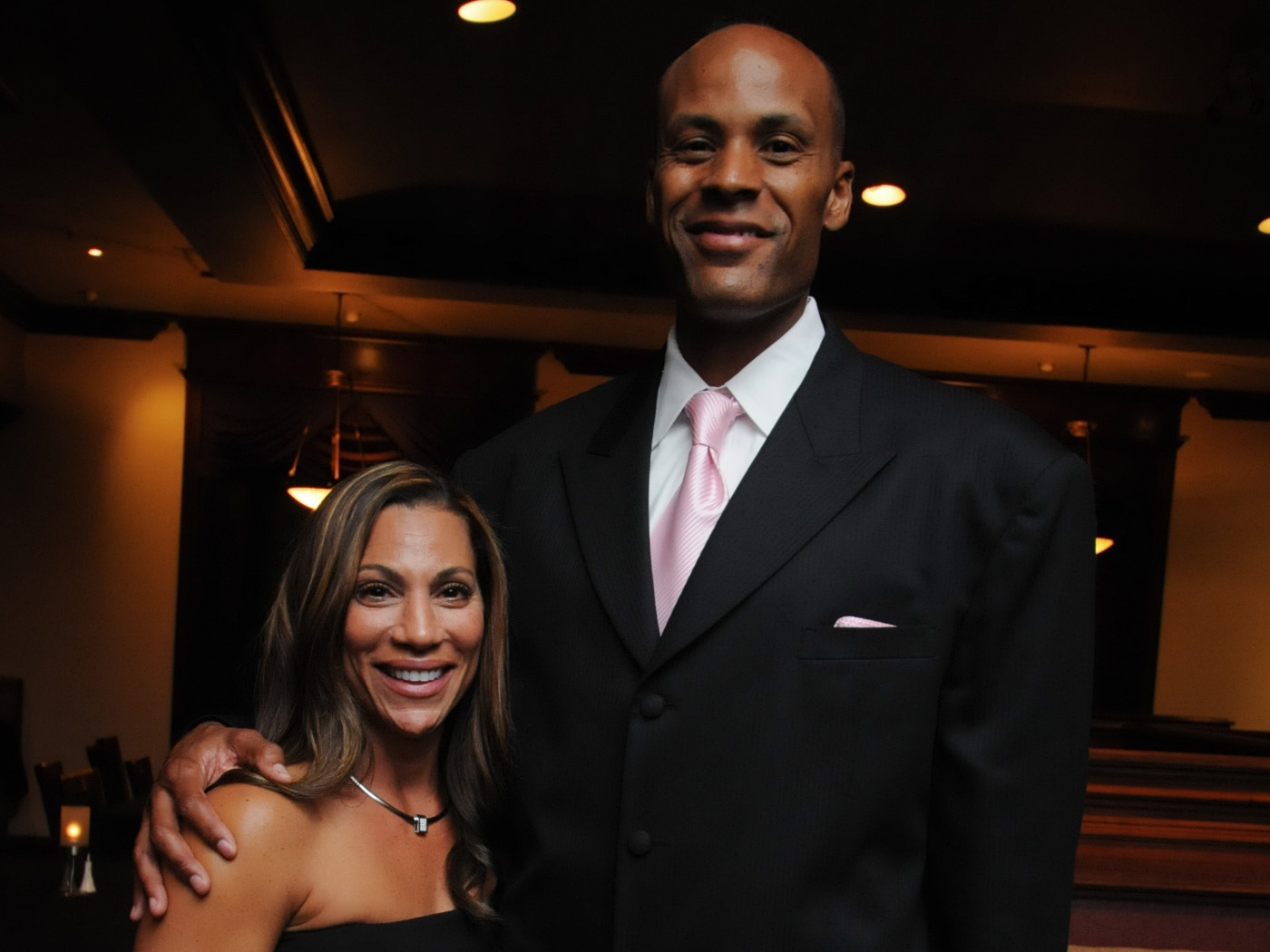
Mentee in Training: A Look at One of My Most Embarrassing Moments
Rookie status in pro sports, or the business world, can lead to several first-year blunders. After the NBA, I worked briefly at John Sestina and Company. The owner, John Sestina (who has since sold the company) is considered the godfather of fee-only financial planning, a compensatory structure involving a flat fee or yearly expense that’s charged to clients for financial advice. Those eight months being mentored by Sestina, Tyler Cook, and Stephen Lukan in 2008 were difficult. The learning curve for comprehensive financial planning, on the advisor side, was quite steep for me. And the test to become a certified financial planner (CFP) was even more mentally draining than playing in the NBA. My workspace was right next to Cook’s, a former colleague and mentor more than a decade younger than me. He was patient, persistent, and prescient in his mentoring duties. I asked one dumb question after another, which didn’t faze Cook. In terms of persistence, he challenged me to see financial planning from the eyes of my former profession. Assist clients on offense by helping them save money and build assets, with defense being tied to insurance and tax planning strategies. Watch out for spending turnovers, which are most often found under the basket of variable expenses. Rebound (or recover from) missed financial shots or unforeseen setbacks — a divorce, illness, or job loss. Cook’s prescience showed up when explaining estate planning concepts that were foreign, at the time, to my way of thinking. I reiterated in one of our mentoring sessions, “You’re talking about an executioner, right?” He couldn’t stop laughing and remarked, “I knew you’d say that word instead of executor.” He continued, “An executioner is someone who kills another person, but an executor carries out the wishes of a decedent’s estate as specified in a last testament or will. I guess death is the common link between these two words.” Cook, Lukan, and Sestina taught me how to laugh at myself when making embarrassing mistakes. Mentors and mentees, take the responsibility seriously but not yourself. Laughter does the body good.

The Power of Philanthropy Is the Gift of Presence
In closing, the good book tells us, “It’s better to give than to receive.” In a world where presence is needed more than presents, change agents must be well-versed in their gift-giving efforts. Yes, meaningfully and materially involved; substance always matters. Whenever I present our Mr. Fundy’s Mentoring Playbook for Youth and Young Adults to groups, I’ll hand an audience member from an at-risk background a $20 or $50 bill and say, “Keep the change.” As Frugal Funderburke, a self-proclaimed cheapskate, I don’t like spending money. But as a life coach and non-traditional educator, the money lost is a down payment on a future investment gained. In the lives and legacies of vulnerable populations who must understand that intangible wealth, of the intellectual kind, always precedes tangible income. “Develop the skills now to pay the bills later” is their lightbulb moment. The benchmark of self-worth (and net worth) is the balance sheet, not the income statement. Strengths are assets, and assets are the things you own. Financial assets include bank accounts, stocks, and material possessions, such as cars, clothes, and computers. But internal assets are the things mentors and mentees can leverage to produce two-way change. They encompass trust, honesty, discipline, hard work, and teamwork, among many other noteworthy attributes. Struggles are liabilities, and liabilities are the things that own you. Financial liabilities consist of debts, loans, or monetary obligations that must be paid (usually with interest) at some point in the future. Internal struggles include toxic thinking, disrespectful attitudes, poor work habits, low self-esteem, and lack of purpose, and so forth. It’s not a capability issue with high-need populations; it’s an accessibility problem. The formula to close the great divide in America is simple: Social Justice = Racial Equity = Opportunity Diversity. Nothing changes externally — socially, racially, or opportunistically — until we transform internally. It’s time for mentors to step forward so that the least among us can step into their mentee greatness, one influence game plan at a time. Are you doing your part?
"Tough" Questions to Consider:

Where do you need to step up in your mentoring playbook or influence game plan with those (inside or outside the workplace) who don’t look, think, or act like you? When will you get started?
How will you make a difference personally, professionally, and philanthropically with your internal assets? What metrics will you use to gauge your effectiveness in terms of baselines and benchmarks?
Which of your internal struggles trips you up in not being a more effective mentor, mentee, or mentoring proponent? Why is this particular struggle holding you back or hindering your growth?

